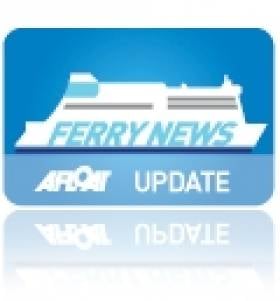Displaying items by tag: Shannon Dolphin
Discounted Ferry Fares across the Shannon
#SHANNON FERRY SERVICE - With the May Bank Holiday looming, those travelling along the mid-western seaboard should note that Shannon Ferries are currently offering discounts of 10% on all 'on-line' tickets booked this month and in June, writes Jehan Ashmore.
The route operated by the Shannon Ferry Group, is the country's longest distance domestic car-ferry service between Killimer-Tarbert and takes 20-minutes to cross the estuary.
In total the short-cut can save 137km by road between the two ferry terminals which link counties Clare and Kerry. Alternatively there is the choice of bridging the Shannon in Limerick City or going underground via the tolled tunnel.
Strategically the route links the popular tourist trail linking the Ring of Kerry, Aran Islands (via the Doolin ferry) and Galway the gateway to Connemara.
The route is served also by the country's largest coastal car-ferries the Shannon Dolphin (1995/500grt) and Shannon Breeze (2000/611grt). They were built by Appledore Shipbuilders in north Devon, which also built the two 'Roisin' class OPV's for the Naval Service over a decade ago.
The 'Breeze' can handle 60 cars and 350 passengers while the slightly smaller 'Dolphin' takes 52 cars and also the same number of passengers to her running mate.
























































